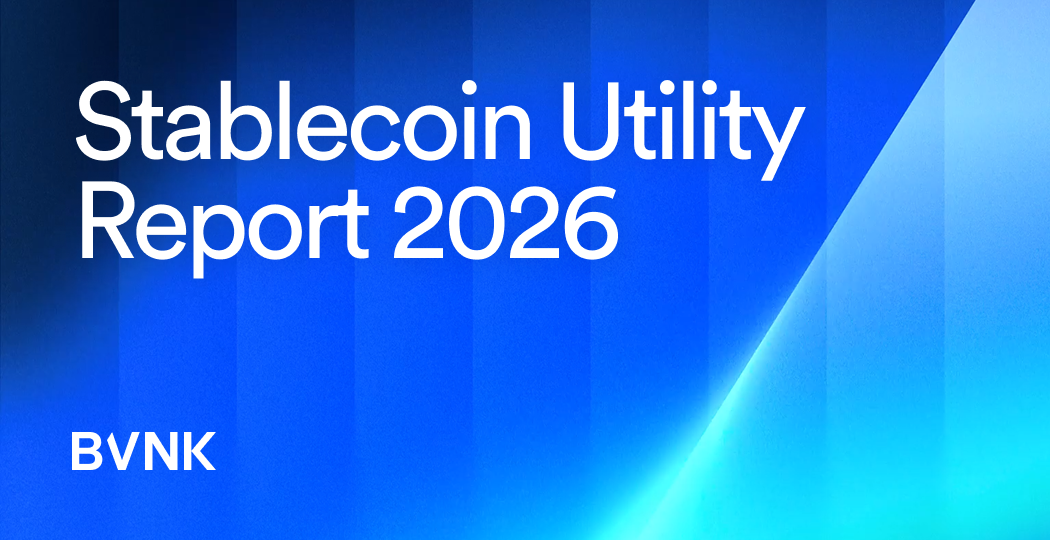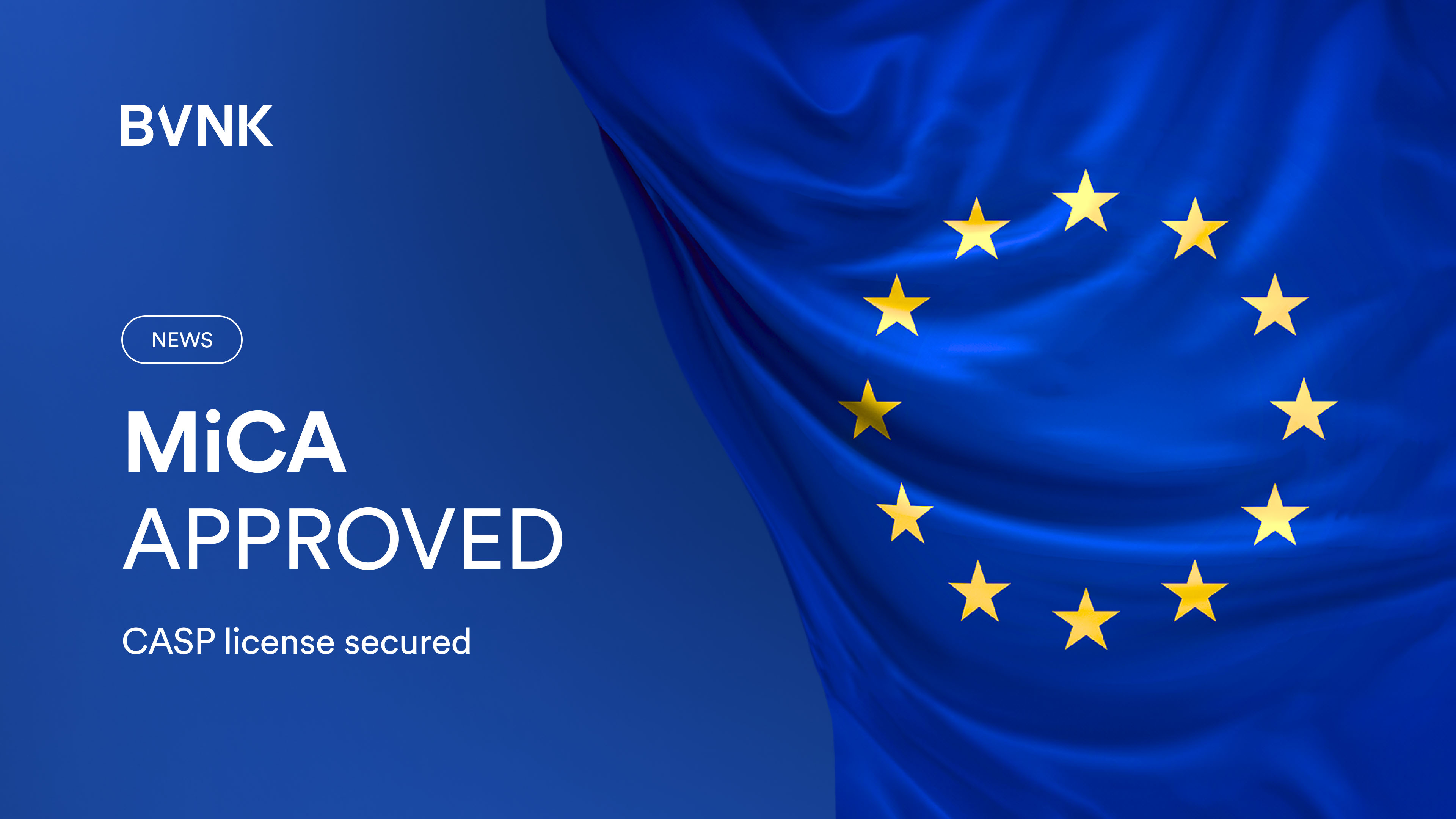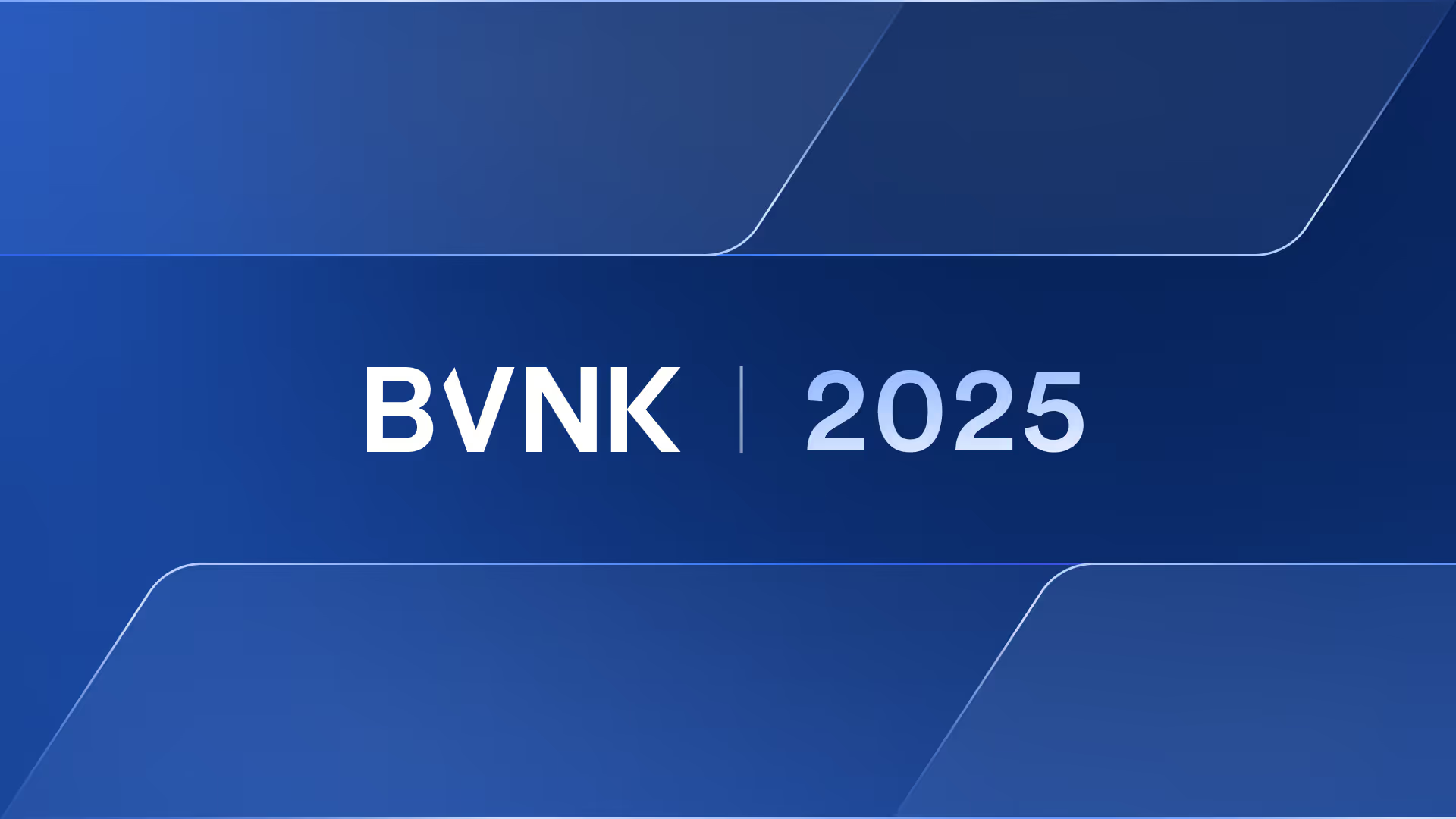The Travel Rule marks a new era of trust for crypto payments in Europe
The Travel Rule for crypto comes to the EU this December, bringing with it greater transparency and regulatory clarity. Here’s what you need to know.
.avif)
The ‘Travel Rule’ for crypto is the latest addition to global anti-money laundering rules for digital asset payments. In the EU, the Travel Rule is a key part of crypto asset regulation, alongside MiCA, helping to protect the crypto ecosystem from financial crime.
The Rule brings greater regulatory clarity and data transparency to crypto, enabling businesses that transact in stablecoins and other cryptocurrencies to thrive. As crypto becomes a more trusted payment choice, we believe more businesses, customers and financial institutions will join this rapidly growing market.
BVNK is authorised as a Virtual Asset Service Provider in the EU by the Bank of Spain, which means we need to be compliant with the Travel Rule by 30 December, 2024. In this article, we’ll outline the Rule requirements, how they apply in the EU, and how providers like BVNK are implementing them in a user-friendly way.
What is the Travel Rule for crypto?
The Travel Rule for crypto is global and applies to any business that facilitates the movement of cryptocurrency and stablecoins, such as payment providers or crypto exchanges. In short, it means that businesses that process crypto payments must now collect, verify and share specific transaction information with each other about who is sending and receiving the payment (this information 'travels' with the payment).
If you haven’t seen changes yet yourself, this might mean your provider’s jurisdiction is yet to adopt the rules, but the changes will benefit everyone soon. In the EU, the Travel Rule comes into effect on 30 December 2024.
Contrary to popular belief, the Travel Rule is nothing new. The term “Travel Rule” comes from a regulatory recommendation by the global watchdog for financial crime, the Financial Action Task Force (FATF), more than 20 years ago.
In 2012, FATF originally required financial institutions to share certain information (such as name, account number or other reliable identifiers) when processing cross-border and domestic wire transfers. This has since been written into law in many countries, including the EU and UK in 2015. In 2019, FATF gave the Travel Rule new life when it applied the same provisions to crypto asset transfers.
Why do we need the Travel Rule for crypto?
The Travel Rule plays a key role in making cryptocurrencies a legitimate and secure payment choice.
While advanced on-chain intelligence tools like Chainalysis or Elliptic already give substantial protection against financial crime, the Travel Rule adds an extra layer of transparency to crypto payments, by ensuring that essential transaction data is shared securely between payment providers.
When and where does the Travel Rule apply?
The Travel Rule applies to all businesses processing crypto transactions, including virtual asset service providers, crypto asset service providers and crypto exchanges.
Different countries have implemented the Travel Rule for crypto at different times over the last five years. It’s already in place in countries like Singapore and the UK. By the end of 2024, it will be fully in effect across the European Union.
The Travel Rule applies to BVNK and all its customers from 30 December 2024.
What kind of data is shared under the Travel Rule?
In its 2019 guidance, FATF set out five pieces of data that should be exchanged between providers under crypto’s Travel Rule:
- The name of the originator (person or business sending the funds)
- The originator’s account number or unique transaction identifier
- The originator’s address or customer ID
- The name of the beneficiary (person or business receiving the funds)
- The beneficiary’s account number or unique transaction identifier
Different jurisdictions have interpreted these guidelines slightly differently. In the EU and Singapore for example, providers must share information for all transactions, regardless of the transaction amount. In other countries, like the UK, providers need to share certain pieces of information for any transaction over £1000.

How does information sharing work under the Travel Rule?
Cryptocurrency service providers essentially ‘pin’ a Travel Rule message to any outgoing transactions through a secure, encrypted channel.
When the receiving crypto service provider gets the transaction, they check the incoming data against their existing financial crime prevention systems and tools. The information provided by the Travel Rule message helps to verify the legitimacy of the transaction, making it easier to detect any suspicious activities.
This process not only strengthens security but also aligns cryptocurrency transactions with fiat currency transactions under the same global financial regulations, boosting trust in the system among users and regulators alike.
What can BVNK customers expect?
BVNK is authorised as a Virtual Asset Service Provider in the EU by the Bank of Spain, which means the rule will be fully in force for us and our customers by 30 December, 2024.
In the coming months, you might be asked to provide slightly more information on who is receiving the payment, similar to traditional bank transfers.
Occasionally, you might also be asked to provide details on who is sending the payment. Transfers to your own, self-hosted wallets will also require a digital signature.
We’ll be reaching out to our customers directly with more information in the coming weeks about updates to the BVNK platform for the Travel Rule.
If you have questions in the meantime, we’d be happy to discuss – please get in touch with our team.
Latest news
View allGet payment insights straight to your inbox








.avif)



.avif)
.avif)





